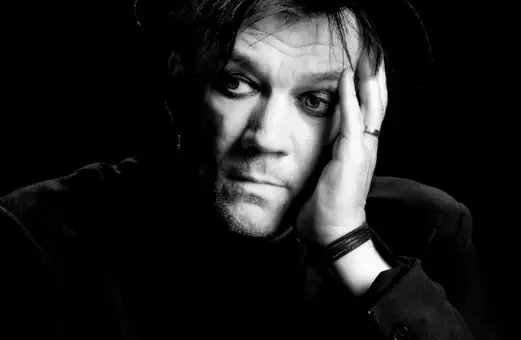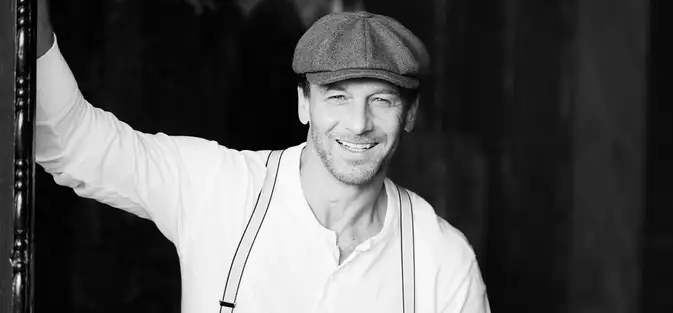In the following blog post you will find eight questions about Jens Böttcher's book "Das Leben ist sinnlos, wenn du nicht liebst".
1. your book title "Life is pointless if you don't love" is extremely captivating. What was the inspiring idea or experience behind this title?
Thank you very much. The idea for the book flew at me at a moment when I was working on various other material. One morning I sat down at my desk and had the somewhat
surprising impulse to just leave everything else behind. So I sat in front of a blank sheet of paper, closed my eyes and then just wrote away, looking to allow what really wanted to be said. A few hours later, I realized that this was going to be my next book.
2 In your "poetic hymn" you celebrate the miracle of being. Can you share a personal experience or encounter that particularly inspired you to write this book?
The text is like a summary of my most important life experiences. I always come back to love anyway. So it's about the power of love, but also about
our lack of it, our often insatiable longing for it, about our interpretation of what it is in the first place, and finally about our incessant inner journey towards it. As strange as it may sound, I found writing not only inspiring, but also a test of courage from time to time. All along the way, I had the feeling that I was really showing my innermost self unfiltered. It was a challenging and ultimately very enriching process.
3 Love and the miracle of being are deep, philosophical themes. How did you manage to put these complex concepts into a poetic and accessible form?
Love and the miracle of being are the core questions of religions and philosophies, the greatest and deepest themes of all. At the same time, they are so often trivialized and
trivialized again and again. However, I feel that love is actually the answer to all our questions in life - to the ones we ask, as well as to the ones we no longer dare to ask. Love has personal, social, political and, of course, spiritual relevance. But it does not appear in the headlines of our newspapers, nor is it consulted as an advisor on current issues
of war or peace and social unrest and worries. In a way, her radiance is ignored, as if she were just something for dreamers and hopeless romantics, as if she were just a kind of icing on an otherwise rock-hard reality. But I don't believe that - because we humans basically decide for ourselves what is real and what is not. So what do we believe in? Where do we want to go? Yes, it is an extremely complex topic. I hope that you have managed to deal with it in a beautiful and appealing way.
4. you are both an author and a musician. Was there a particular song or piece of music that played a special role during the writing of this book?
That's a very nice question. Well, no, there was no accompanying music, but interestingly enough, I perceived the writing itself as a very musical experience. As if I were writing a song that didn't need music, but at the same time as if I were writing music that used the words as a melody.
5. the book cover of your work is impressive and striking. Can you tell us something about the choice of cover design and its meaning?
I would like to pass on the praise to Kampenwand Verlag and my dear friend and graphic designer Tobias Grimm, as well as to our great editor Stefanie Wilkens, who was also involved in this process. Right from the start, we wanted to design a cover that expressed beauty and clarity - it's wonderful that it turned out so well and is so well received.
6. what role does nature play in your book? Are there any particular places or landscapes that play an important role in your "Hymn to the Wonder of Being"?
I use a lot of images in the text that try to describe the connection between nature, spirituality and our deep feelings. Everything is connected - the oceans, the mountains,
the deserts, the steppes, the sunrise, the sky, the earth, the seasons - if we quietly feel inside ourselves, these are all wonderful metaphors for what we experience on the inside and also for what surrounds us on the outside in our interpersonal relationships.
7 Your book is a fusion of poetry and philosophy. Can you share with us a quote or passage from your book that you think best captures the essence of your message?
I'm afraid that's impossible because everything is so complexly interwoven. In the text, love appears as a dreamed queen, as a religiously unbound, free, holy spirit - and so she speaks to the person who writes down her words. This person is then again a symbol for all of us. A key sentence is this: "Who kisses the sleeping human princess?" This is intended to say that we are all a miracle, but that the circumstances of our lives mean we keep forgetting this - and that much, much more is possible than what we often perceive as an irrefutable reality. The key is us. If we want a loving world, we should first dare to be loving ourselves. This also includes using love to overcome fear, which always manages to convince us that we are guilty and "not good enough". I firmly believe that love is also able to heal this fear.
8) If you wanted readers to take away one important message after reading your book, what would it be?
That's simple ... and complicated at the same time ... because the topic is so huge ... so I can only answer at this point: Life is pointless if you don't love. 🙂




